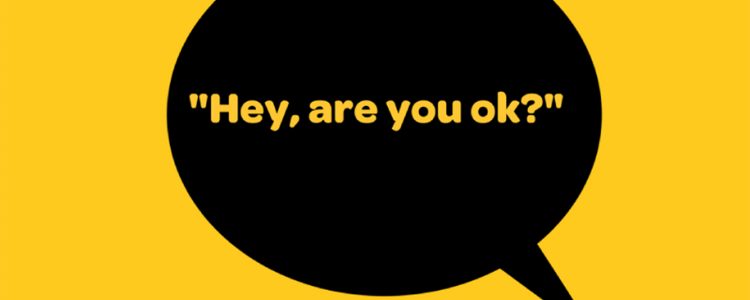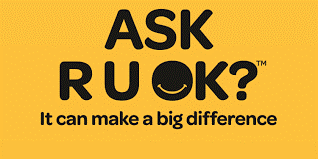

You don’t need special skills to support someone in need. Asking, “Are you OK?” with kindness, concern and in a genuine way can make a world of difference. A day to help to inspire and empower everyone to meaningfully connect with people around them and support anyone struggling with life.
In 1995, much-loved Barry Larkin was far from ok. His suicide left family and friends in deep grief and with endless questions.
In 2009, his son Gavin Larkin chose to champion just one question to honour his father and to try and protect other families from the pain his endured.
“Are you OK?”
The extraordinary story behind R U OK? was brought to life by Australian Story in 2011.
We know that suicide prevention is an enormously complex and sensitive challenge the world over. But we also know that some of the world’s smartest people have been working tirelessly and developed credible theories that suggest there’s power in that simplest of questions – “Are you ok?”
One of the most significant theories is by United States academic, Dr Thomas Joiner. 1 Because his father took his own life, Thomas has dedicated his research to try and answer that question “why?”
His theory tries to answer that complex question by describing three forces at play in someone at risk. The first force is the person thinks they’re a burden on others; the second is that they can withstand a high degree of pain; and the third is they don’t feel connected to others.
It’s this lack of connection (or lack of belonging) that we want to prevent. By inspiring people to take the time to ask “Are you ok?” and listen, we can help people struggling with life feel connected long before they even think about suicide. It all comes down to regular, face-to-face, meaningful conversations about life. And asking “Are you ok?” is a great place to start.
As well as helping you start these conversations, we’re working with experts in the field to monitor how these conversations impact on Australia’s suicide rate.

HOW TO ASK:
By starting a conversation and commenting on the changes you’ve noticed, you could help that family member, friend or workmate open up. If they say they are not ok, you can follow our conversation steps to show them they’re supported and help them find strategies to better manage the load. If they are ok, that person will know you’re someone who cares enough to ask.
For more information or to Donate to support such a meaningful fund please visit:
Counselling (24/7)
If you need further support please contact one of the following numbers
• Lifeline Australia – 13 11 14
• Lifeline New Zealand – 0800 543 354
• Kids Helpline – 1800 55 1800
• MensLine Australia – 1300 78 99 78
• Suicide Call Back Service – 1300 659 467
• Beyond Blue – 1300 22 4636
• Veterans and Veterans’ Families Counselling Service – 1800 011 046

